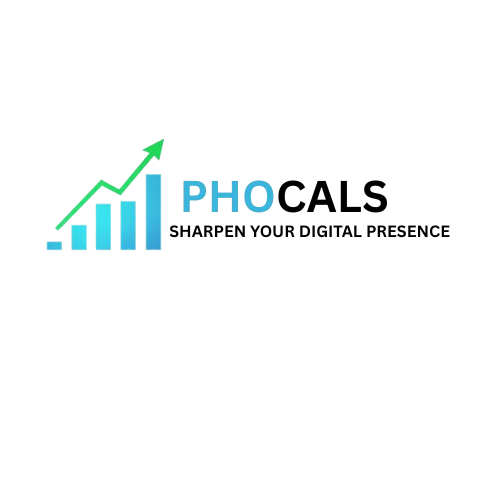Nowadays social media, digital world has become one of the most powerful tools businesses can use to reach their target audience. Social media platforms like Facebook, Instagram, twitter offer a vast, diverse pool of potential customers. However, simply having a presence on social media is not only enough. To stand out from your competitors, businesses must strategically leverage social media marketing to build meaningful connections, enhance brand visibility, and drive sales. Here’s how you can do it effectively.
1. SET CLEAR AND MEASURABLE GOALS
It’s important to set clear objectives before diving into content creation or paid advertisements.

Common goals include:
- Increasing brand awareness
- Build a community
- Boosting sales
- Driving website traffic
- Generating leads
2. UNDERSTAND YOUR TARGET AUDIENCE
Knowing your target audience is the foundation of effective social media marketing. Conduct detailed audience research to understand:

- Demographics (age, gender, location)
- Interests and hobbies
- Pain points and challenges
- Preferred social platforms
Social listening tools can help monitor online conversations around your brand or industry. This way you can identify what matters most to your audience and tailor content that resonates
3.CHOOSE THE RIGHT SOCIAL MEDIA PLATFORMS
Depending on your industry and audience, some platforms will be more effective than others, not every social media platform suits every business. It’s not advisable to choose a platform where your audience isn’t active. For example:

- LinkedIn is ideal to connect with professionals
- Instagram are excellent for visually- driven industries like fashion, food and beauty.
- Twitter works well for real time updates, industry news or engaging in conversations
One of the methods to find out where your audience hangs out online is to have a customer survey. Email marketing is an option to have a survey if you don’t have a captive audience on social media or connect with brand advocates or loyal customers through WhatsApp if that’s an option.
4. CREATE HIGH QUALITY AND ENGAGING CONTENT

Content is the crucial part in social media marketing. To capture attention in the ever-scrolling feed of you audience, your content must be:
- Visually appealing: Use high quality images, infographics and videos
- Informative and relevant- Offer valuable insights, tips or solutions that solve your audience’s problems
- Entertaining- Mix in light hearted posts, behind the scenes content or memes to humanize your brand.
- Consistent- Maintain a consistent posting schedule so your audience knows when to expect new content.
5. LEVERAGE PAID ADVERTISING STRATEGICALLY
Due to algorithm restrictions organic reach on social media can be limited. To amplify your efforts, investing in paid advertising is essential. Social media platforms offer highly targeted ad solutions that allow you to narrow down your audience based on location, interests, behaviour and demographics.

Start with small budgets to test different ad creatives and audience segments. Analyse performance metrics and optimize your campaigns based on data insights. Retargeting ads can also help reconnect with visitors who engaged with your content but didn’t convert
6. ENGAGE ACTIVELY WITH YOUR AUDIENCE
Social media is a two-way communication platform. Effective brands actively engage with their followers. Make it a priority to:

- Responds to comments and direct messages promptly.
- Acknowledge positive feedback.
- Handle negative comments gracefully and try to improve it and provide solutions.
- Encourage discussions through thought provoking questions or polls.
7.COLLABORATE WITH INFLUENCERS AND BRAND ADVOCATES
Influencer marketing has a become avital strategy for social media success. Collaborating with influencers or brand advocates can help you reach new audiences, also helps to increase engagement with your content and build credibility. Choose influencers whose aligns with your target market who authentically represent your brand values.

For small and medium businesses, it is ideal to have micro influencers with 10K-50K followers as it often delivers better engagement and affordability compared to mega influencers.
8. MONITOR, ANALYZE AND ADAPT

Social media trends and algorithms constantly evolve, so it’s important to track your performance regularly, use built-in analytics tools such as Facebook Insights, Instagram Analytics or LinkedIn analytics to monitor engagement rate, conversions, click-through rate and follower growth.
Based on these metrics, identify which content performs best, what times yield higher engagement, and which campaigns drive sales. Adapt your strategy accordingly to stay ahead of the curve.
CONCLUSION

Social media marketing offers unmatched opportunities to build brand awareness, attract target audience and drive business growth. However, success doesn’t happen by accident. You can maximize your social media impact by setting clear objectives, understanding the target audience, choosing the right social media platform, creating high quality and engaging content, leveraging paid advertising, and regularly analysing performance.
Consistency, creativity and active engagement are key to standing out in the digital space. Start small, experiment strategically and watch your social media presence turn into a powerful business asset.
